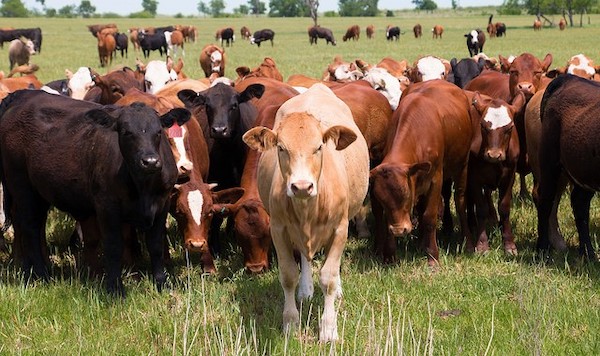The U.S. Food and Drug Administration has added a new genetically modified beef cattle to its growing list of CRISPR-edited foods that are approved for human consumption. The cattle, created by Recombinetics, were bioengineered to have short-hair coat trait known as a “slick” coat. While this is the third genetically modified animal to win FDA approval for human consumption, it marks the first time an approval has been granted under the agency’s short-form process.
The CRISPR modification gives the new cattle, known as PRLR-SLICK, a shorter, slicker coat. The trait allows the animals to withstand hot weather without the stress that interferes with packing on weight and could help improve production in hotter climates. Because the modification is one already found in some cattle naturally, it is considered a low-risk “intentional genomic alteration” (IGA) and qualified for an accelerated approval process the FDA has carved out for certain technologies.
Recombinetics used CRISPR technology, which allows scientists to make precise changes to the DNA known as “gene editing.” In simple terms, gene editing is a small, controlled tweak to a living organism’s existing DNA whereas “genetic modification” typically involves the introduction of new, foreign DNA.
Only two other genetically modified animals have received FDA approval – AquAdvantage salmon and GalSafe pigs. Both the pigs and salmon had to go through a much more burdensome and lengthy approval process than the cattle however, as they were modified with the insertion of foreign DNA. It took nearly 20 years for AquAdvantage salmon to win approval and a little over a decade for GalSafe pigs. The agency’s review of the cattle, by contrast, took “several months” according to the FDA.
Steven M. Solomon, director of FDA’s Center for Veterinary Medicine believes the FDA’s approval “will encourage other developers to bring animal biotechnology products forward for the FDA’s risk determination in this rapidly developing field, paving the way for animals containing low-risk IGAs to more efficiently reach the marketplace.” However, he also noted that a genetically altered animal marketed as having a special advantage — such a higher than normal ability to withstand heat — might need to go through the full approval process.
It will likely take a couple of years before meat from the cattle reaches the market. Alison Van Eenennaam, an animal geneticist at UC Davis who has worked with Recombinetics, explains that once the semen is used to create embryos, gestation would take about nine months and the resulting calves might be slaughtered after about 10 months. (Sources: FoodSafetyNews, Los Angeles Times, FDA)






